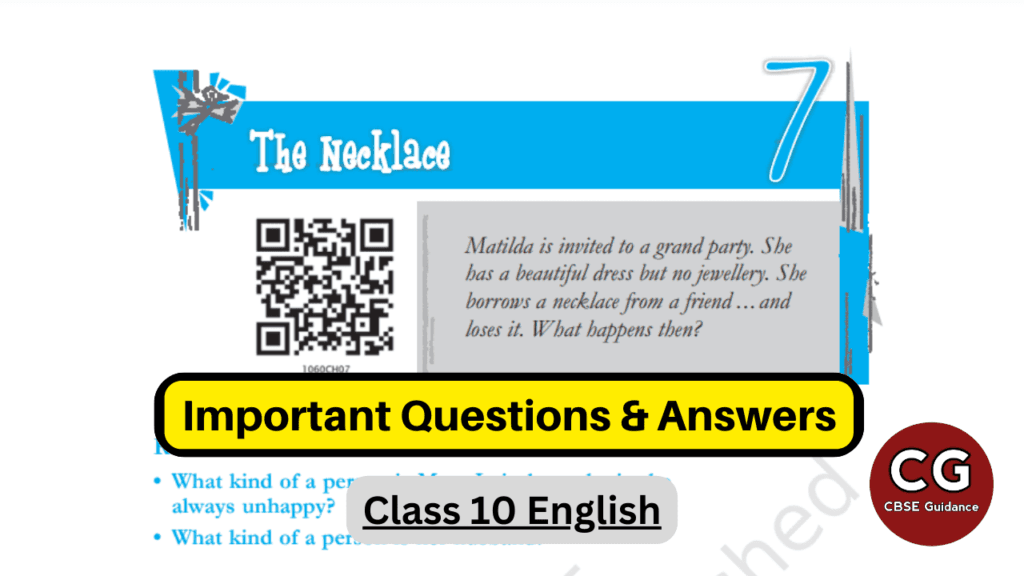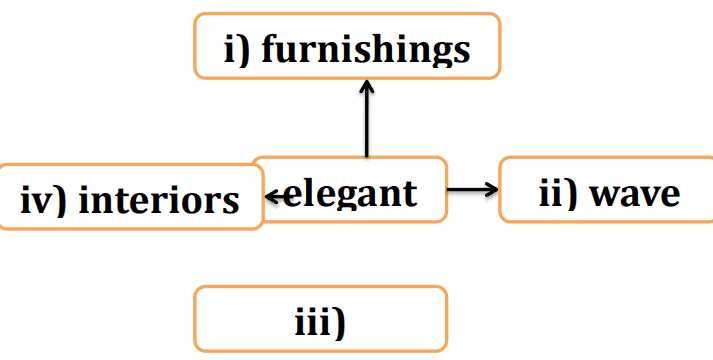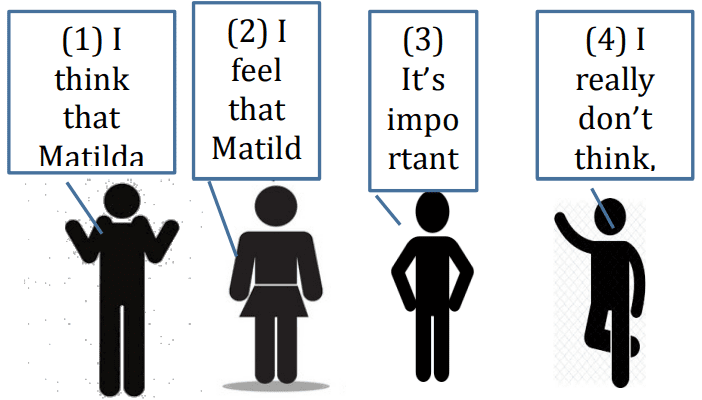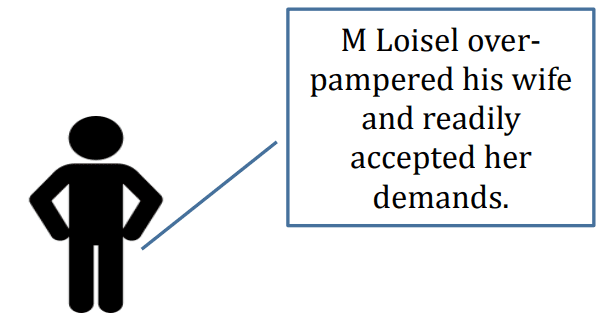Welcome to our comprehensive guide on "The Necklace Class 10: Important Questions Answered." As students of Class 10 English, studying from the "Footprints without Feet" book, you're likely familiar with the captivating narratives within its pages. In Chapter 7, you delve into the intriguing world crafted by the renowned writer, Guy de Maupassant.
This blog post aims to provide you with extra question answers, ensuring a thorough understanding of the chapter's nuances and themes. With our detailed explanations, you'll be equipped to tackle any examination or assignment related to "The Necklace." Plus, for your convenience, a downloadable PDF containing all the answers is available, making your study journey even more accessible and efficient. Let's embark on this literary exploration together, unlocking the secrets of "The Necklace" and enhancing your English learning experience.

| Subject | English Language & Literature |
| Class | 10 |
| Board | CBSE |
| Chapter Name | The Necklace |
| Type | Important/Extra Questions and Answers |
| Session | 2024-25 |
| Book Name | Footprints without Feet |
| Literature | Story written by Guy De Maupassant |
"Change is the end result of all learning."
- Leo Buscaglia
The Necklace Class 10 Important Questions Answers
Q. No. 1) Multiple Choice Questions based on an extract:
“She suffered incessantly, feeling herself born for all delicacies and luxuries. She suffered from the poverty of her apartment, the shabby walls and the worn chairs. All these things tortured and angered her.
When she seated herself for dinner opposite her husband who uncovered the tureen with a delighted air, saying, “Oh! the good potpie! I know nothing better than that...,” she would think of elegant dinners of shining silver; she thought of the exquisite food served in marvellous dishes. She had neither frocks nor jewels, nothing. And she loved only those things.
She had a rich friend, a schoolmate at the convent, who she did not like to visit- she suffered so much when she returned. She wept for whole days from despair and disappointment.”
i. Choose the option that lists the set of statements that are NOT TRUE according to the given extract.
- Matilda was very pleased with her life.
- Matilda envied her friend for being well-off.
- M Loisel didn’t appreciate what Matilda cooked.
- Matilda despised the fact that she lived a life of poverty.
- Matilda never felt troubled, though she desired a luxurious life.
- Matilda thought of grand dinners and silverware sitting at the dinner table.
- Matilda felt depressed after visiting her friend.
a) 1, 3, 6
b) 3, 5, 7
c) 1, 3, 5
d) 2, 4, 7
Ans. Option (c)
ii. Which word does ‘delicacies’ NOT correspond to?
a) etherealness
b) elegance
c) exquisiteness
d) robustness
Ans. Option (d)
iii. Choose the answer that lists the correct option of what a ‘tureen’ is.

a) Option (i)
b) Option (ii)
c) Option (iii)
d) Option (iv)
Ans. Option (c)
iv. Choose the characteristic displayed by M Loisel in the extract.
a) conceited
b) contended
c) appeased
d) subdued
Ans. Option (b)
v. The extract uses the phrase ‘elegant dinners’. Which of the following expressions is incorrect with respect to the word ‘elegant’?

a) option i)
b) option ii)
c) option iii)
d) option iv)
Ans. Option (c)
Q. No. 2) Multiple Choice Questions based on an extract:
“He was silent, stupefied, in dismay, at the sight of his wife weeping. He stammered, “What is the matter? What is the matter?”
By a violent effort, she had controlled her vexation and responded in a calm voice, wiping her moist cheeks, “Nothing. Only I have no dress and consequently, I cannot go to this affair. Give your card to some colleague whose wife is better fitted out than I.’’
He was grieved, but answered, “Let us see, Matilda. How much would a suitable costume cost, something that would serve for other occasions, something very simple?”
She reflected for some seconds thinking of a sum that she could ask for without bringing with it an immediate refusal and a frightened exclamation from the economical clerk.”
i. What does ‘economical clerk’ indicate?
a) M Loisel was a spendthrift even though he earned a lot.
b) M Loisel was thrifty as he had a meagre income.
c) M Loisel calculated money all the time as he was a clerk.
d) M Loisel was stingy about money and didn’t spend it.
Ans. Option (b)
ii. Pick the option that correctly classifies fact/s (F) and opinion/s (O) of the people below:

a) F-1, 2 and O-3, 4
b) F-3, O-1,2, 4
c) F-2, 4, O-1,3
d) F-2, 3, 4, O-1
Ans. Option (b)
iii. Pick the correct set that matches with the feelings of the highlighted words related to the characters:
Matilda: By a violent effort, she had controlled...
M Loisel: He was grieved....
- Matilda felt aggressive; M Loisel was troubled
- Matilda was irritated; M Loisel was upset and cried
- Matilda tried extremely hard; M Loisel felt intense sorrow
- Matilda was quite calm; M Loisel’s heart ached for love
a) Option 1)
b) Option 2)
c) Option 3)
d) Option 4)
Ans. Option (c)
iv. M Loisel was astonished seeing his wife’s reaction. He writes a diary entry that night. Complete the entry by with the missing words, by choosing the correct option.

a) i) vexed ii) disturbed iii) bring
b) i) elated ii) disturbed iii) afford
c) i) keen ii) depressed iii) bring
d) i) elated ii) distressed iii) afford
Ans. Option (d)
v. Choose the option that gives the most appropriate response to the statement made by the speaker.

a) I think Matilda was being unreasonable and unrealistic.
b) I feel that M Loisel loved Matilda and wanted her to be happy.
c) In my opinion M Loisel was being too harsh with Matilda.
d) I feel that M Loisel should not have brought the invite home.
Ans. Option (b)
Q. No. 3) Mme Loisel now knew the horrible life of necessity. Do you think Mme Loisel accepted this change willingly? Give two reasons in support of your answer.
Ans. Mme Loisel did not accept the change willingly. Firstly, she was accustomed to a life of luxury, which made adjusting to a life of necessity difficult. Secondly, her desires for wealth and social status remained unfulfilled, causing her discontent with her new circumstances.
Q. No. 4) If you were caught in a situation like this, how would you have dealt with it?
Ans. Better ways to deal with such a situation:
- Be honest immediately about losing the item
- Take responsibility but seek understanding
- Discuss possible solutions with the lender
- Offer to replace it over time if necessary
- Keep clear communication channels open
- Learn from the mistake rather than trying to hide it
- Seek help from family or friends if needed
- Consider insurance when borrowing valuable items
- Get a proper valuation before replacing anything expensive
Q. No. 5) Mention one of the most pleasurable things, according to you, that money can’t buy and support your choice with an appropriate reason.
Ans. One of the most pleasurable things that money can't buy is genuine love and companionship. True connections with others are built on mutual respect, understanding, and emotional bonds, which cannot be purchased with wealth.
Q. No. 6) Imagine Matilda got to know that M Loisel had given her four hundred francs, which he had saved to buy a gun. How do you think she would have reacted?
Ans. Likely reactions:
- Initial shock and surprise at his secret sacrifice
- Brief guilt about her ungrateful behavior
- Possible momentary appreciation for his thoughtfulness.
However, given her character:
- The appreciation would probably be short-lived
- She might still think 400 francs too modest
- Would likely return to her usual discontent
- May not fully value the sacrifice due to her materialistic nature.
Q. No. 7) How did Matilda's belief that she was 'an error of destiny' result in a lifetime of sorrow for her?
Ans. Matilda's belief that she was "an error of destiny" led to her lifetime of sorrow in several ways:
- Made her constantly dissatisfied with her middle-class life
- Prevented her from appreciating what she had
- Created unrealistic expectations of luxury and grandeur
- Led her to despise her comfortable home and adequate lifestyle.
This mindset caused:
- Poor decisions:
- Borrowing an expensive necklace to appear wealthy
- Not being honest about losing it
- Taking on massive debt to replace it
- Personal losses:
- Lost her youth and beauty prematurely
- Gave up her comfortable lifestyle
- Spent 10 years in extreme poverty
- Ruined her husband's financial stability.
Q. No. 8) Mme Forestier writes a diary entry after having met Matilda, knowing the truth and seeing the transformation in her friend. Write a short diary entry as Mme Forestier about your encounter and how you felt. You may begin like this.

Ans.
20th July, Monday 9:00pm
I couldn't recognize Matilda at all. The woman who stood before me seemed like a ghost of the vibrant girl I once knew. Her eyes, once full of dreams, now reflected only sorrow and regret. Learning the truth about the necklace shattered my heart. If only she had confided in me sooner. Seeing her transformation, I felt a mix of sadness and empathy. Matilda's ordeal serves as a stark reminder of the power of deception and the fragility of human happiness. I can only hope that she finds solace and redemption in the midst of her trials.
Madame Forestier
Q. No. 9) Imagine you’re one of the columnists in a magazine. People write to you about their issues, seeking your advice.
Matilda writes to you about the guilt she feels for having lost a necklace and how it changed the course of her life and her husband’s. What would be your advice to her?
Ans.
Dear Matilda,
Guilt can be a heavy burden to carry, but it's important to remember that mistakes are a part of being human. Use this experience as an opportunity for growth and self-reflection. Apologize to your husband, forgive yourself, and focus on rebuilding your life together.
Best regards,
[Your Name]
Q. No. 10) Matilda goes home after meeting Mme Forestier after ten years and shares the fact with M Loisel that the necklace was a false one. Write the dialogue between Matilda and M Loisel.
Matilda: I don’t know how to tell you this but I met Mme Forestier today and she told me that her necklace was
M Loisel: What! I can’t believe my ears. That huge debt was for nothing!
Matilda: ........................................................................................................................
M Loisel: ......................................................................................................................
Ans.
Matilda: I don't know how to tell you this, but I met Madame Forestier today, and she confessed that her necklace was fake.
M Loisel: What! I can't believe my ears. That huge debt was for nothing!
Matilda: I'm sorry, I should have been honest from the beginning.
M Loisel: We can't change the past, but at least now we know the truth. Let's move forward together, Matilda.
Q. No. 11) Briefly state how Matilda invited ‘a dreadful life of necessity’ into her family.
Ans.
- Matilda’s extreme self-indulgence--dreams of a luxurious life, riches, and jewellery
- Doesn’t pay heed to the advice of wearing natural flowers-- borrows the necklace-- loses it
- In paying for the necklace invited a horrible life of necessity and deprivation/ a life that resulted in a hand-to-mouth existence.
Q. No. 12) How does the necklace change the course of the Loisel’s life?
Ans. Only because of necklace and showing off, Loisel fell in a debt trap which forced her to live like an ordinary lower middle class housewife. She started doing all the household chores which a lady of her status normally does not do. Aspirations have no limits but one should never forget the ground realities.
Q. No. 13) What mademe Forestier exclaims in astonishment, when she saw Matilda, years after the Minister’s ball?
Ans. The change in Matilda’s physical appearance (comparison from what she was at the time of the minister’s ball, to current).
Q. No. 14) How does the writer’s use of the literary device-a twist in the tale- towards the story’s end, impact the narrative of The Necklace?
Ans. The twist at the end of "The Necklace" - revealing that the original necklace was fake - significantly impacts the narrative in several ways:
Irony
- Dramatic irony: Readers realize the Loisels' decade of suffering was unnecessary
- Situational irony: The real necklace was worth only 500 francs, but they paid 36,000 francs
- The fake diamonds mirror Mathilde's fake aspirations
Theme Enhancement
- Strengthens the theme of appearance vs. reality
- Highlights the cost of pride and vanity
- Emphasizes the futility of materialistic desires
Character Revelation
- Shows the tragic consequences of Mathilde's pride
- Demonstrates how assumptions and pretense led to ruin
- Reveals the price of keeping up appearances
Q. No. 15) Ostentation and vanity often land people in trouble. Matilda is an apt example of this. Justify.
Ans. Matilda's desire for a life of luxury and glamour led her to borrow a necklace she couldn't afford, setting off a chain of events that plunged her into poverty. Working tirelessly to repay the debt, she lost her charm and youthful vitality, consumed by the burden of her own vanity. Her story serves as a cautionary tale, highlighting the dangers of excessive ostentation and the importance of being content with what one has. Her experience highlights the importance of being content with what one has and avoiding the temptation to show off, as the pursuit of superficial desires can ultimately lead to ruin and misery.
Q. No. 16) Your teacher conducted an Turn Tables in class, and asked you to put forth your views on ‘Frugality in Life is the Ideal Way to Live’.
Write the debate script with points to supplement your stand, both for and against the motion and conclude with your own views.
Ans.
For the motion:
- Frugality promotes financial stability and reduces the risk of debt.
- It encourages responsible consumption and helps in saving for future needs.
- Frugal living fosters appreciation for simple pleasures and reduces materialistic desires.
- It promotes sustainability by reducing waste and conserving resources.
- Frugality encourages creativity and resourcefulness in finding alternative solutions.
Against the motion:
- Frugality may lead to deprivation and a lower quality of life.
- It can hinder economic growth by reducing consumer spending.
- Frugal living may limit opportunities for personal growth and experiences.
- It may result in missed opportunities for enjoyment and fulfillment.
- Frugality might create social stigma or pressure to conform to societal norms.
Conclusion:
While frugality offers many benefits such as financial stability and sustainability, it's essential to strike a balance. Embracing frugality in moderation can lead to a more fulfilling and sustainable lifestyle, but complete austerity may not be suitable for everyone. Therefore, I believe that incorporating elements of frugality into our lives while also allowing for enjoyment and personal growth is the ideal way to live.
Q. No. 17) One of your friends has to attend a class party at his / her school and wants to purchase the most expensive clothes and shows. He/ She feels that this would make him/ her stand out in the crowd.
You receive a call from your friend seeking advice on this matter. Write down that telephonic conversation between your friend and yourself.
You may begin this way:
Friend: Hey, I want an honest opinion from you. Will you please help me?
You: ..........................................................................................................................................
Friend: So, there’s this class party I have to attend. It’s a big deal!
You: .........................................................................................................................................
Ans.
Friend: Hey, I want an honest opinion from you. Will you please help me?
You: Of course, I'm here to help. What's on your mind?
Friend: So, there's this class party I have to attend. It's a big deal!
You: I understand. What are you thinking of wearing?
Friend: I was thinking of buying the most expensive clothes and shoes to stand out.
You: Hmm, have you considered whether that's really necessary? You can still look great without spending a fortune. Plus, true style comes from confidence, not just expensive labels.
Friend: I guess you're right. I don't want to break the bank for one party.
You: Exactly! Let's find something stylish and affordable that reflects your personality instead.
Friend: Thanks for talking some sense into me. I feel much better now.
You: Anytime! Let's go shopping together and find the perfect outfit.
Q. No. 18) Read the following quote.
“We are too involved in materialistic things, and they don't satisfy us. The loving relationships we have, the universe around us, we take these things for granted.” - Mitch Albom
Matilda was never satisfied with her life and desired more. The given quote reflects her character. Justify.
Ans. Matilda's insatiable desire for materialistic things and constant dissatisfaction with her life closely align with the sentiments expressed in the quote by Mitch Albom. Throughout "The Necklace," Matilda's relentless pursuit of wealth and luxury blinds her to the beauty of the loving relationships she has, such as her husband's unwavering support. She fails to appreciate the simple joys of life and takes for granted the universe around her, focusing instead on what she perceives as lacking. Matilda's character epitomizes the idea that material possessions do not bring lasting satisfaction and that true fulfillment comes from cherishing the intangible blessings of life, a sentiment echoed in Albom's quote.
Q. No. 19) What was the main cause for Matilda's ruin? How could you help her save herself, if you were her friend?
Ans. Cause of Matilda's ruin
- Her desire to look pretty
- Her poverty
- Her nature of borrowing
- Her carelessness at the ball room
- Her simplicity --not to know the cost before paying the money
How to help her save herself from the ruin
- Ask her not to borrow jewellery
- Make her feel that she looked extremely beautiful in her dress.
- Giving my own jewellery
- Help her more money
- Ask her to find out the cost from her friend.
Q. No. 20) Imagine that M. Loisel, from The Necklace by Guy de Maupassant, writes a diary entry, exploring the theme of class and social status, and the nature of social mobility, in the context of his own experience.
Write this diary entry , as M. Loisel, in about 120 words.
Ans. It's been a tough the past few years, for my wife, Matilda, and me. As I reflect on our experience, I can't help but think about the broader societal issues that have contributed to our predicament.
It's clear to me now that our society is structured in a way that makes upward mobility difficult, if not impossible. The rich get richer, while the rest of us struggle to make ends meet. We live in a world where social status is determined by the amount of wealth one possesses, rather than by one's character or virtues. This narrow view of success has led many people, including Matilda, to pursue material possessions at the expense of their own happiness.
The loss of the borrowed necklace was a painful lesson for both of us. It reminded us that the pursuit of social status and upward mobility can be a trap, leading people to sacrifice their happiness and well-being in the pursuit of an unattainable dream.
Q. No. 21) People should always try to live within their means. Aspirations have no limits but one should never forget the ground realities. Elaborate on the basis of chapter, “The Necklace”.
Ans.
- Live a contented life
- Best quoted phrase is ‘Honesty is the best policy’
- Simple living and high thinking,
- We should not run after materialistic world
- We must not think beyond our limits.
Hope you liked these Important (extra) Questions & Answers on Class 10 English Footprints without Feet Book Story 'The Necklace' by Guy de Maupassant. Please share this with your friends and do comment if you have any doubts/suggestions to share.